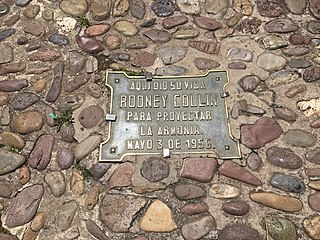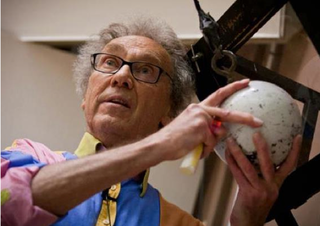A Quote by Friedrich Nietzsche
Whenever the truth is uncovered, the artist will always cling with rapt gaze to what still remains covering even after such uncovering; but the theoretical man enjoys and finds satisfaction in the discarded covering and finds the highest object of his pleasure in the process of an ever happy uncovering that succeeds through his own efforts.
Related Quotes
Let no one imagine that he will lose anything of human dignity by this voluntary sell-out of his all to his God. He does not by this degrade himself as a man; rather he finds his right place of high honor as one made in the image of his Creator. His deep disgrace lay in his moral derangement, his unnatural usurpation of the place of God. His honor will be proved by restoring again that stolen throne. In exalting God over all, he finds his own highest honor upheld.
A Godly leader ... finds strength by realizing his weakness
finds authority by being under authority
finds direction by laying down his plans
finds vision by seeing the needs of others
finds credibility by being an example
finds loyalty by expressing compassion
finds honor by being faithful
finds greatness by being a servant
What counts, I found, is not what you cover, but what you uncover. Covering subjects in a class can be a boring exercise, and students feel it. Uncovering the laws of physics and making them see through the equations, on the other hand, demonstrates the process of discovery, with all its newness and excitement, and students love being part of it.
Feelings dwell in man; but man dwells in his love. That is no metaphor, but the actual truth. Love does not cling to the I in such a way as to have the Thou only for its " content," its object; but love is between I and Thou. The man who does not know this, with his very being know this, does not know love; even though he ascribes to it the feelings he lives through, experiences, enjoys, and expresses.
He who always seeks more light the more he finds, and finds more the more he seeks, is one of the few happy mortals who take and give in every point of time. The tide and ebb of giving and receiving is the sum of human happiness, which he alone enjoys who always wishes to acquire new knowledge, and always finds it.
The director’s task is to recreate life, its movement, its contradictions, its dynamic and conflicts. It is his duty to reveal every iota of the truth he has seen, even if not everyone finds that truth acceptable. Of course an artist can lose his way, but even his mistakes are interesting provided they are sincere. For they represent the reality of his inner life, of the peregrinations and struggle into which the external world has thrown him.
It has always been my belief that the true artist, like the true scientist, is a researcher using materials and techniques to dig into the truth and meaning of the world in which he himself lives; and what he creates, or better perhaps, brings back, are the objective results of his explorations. The measure of his talent--of his genius, if you will--is the richness he finds in such a life's voyage of discovery and the effectiveness with which he is able to embody it through his chosen medium.
The solitary and thoughtful stroller finds a singular intoxication in this universal communion. The man who loves to lose himself in a crowd enjoys feverish delights that the egoist locked up in himself as in a box, and the slothful man like a mollusk in his shell, will be eternally deprived of. He adopts as his own all the occupations, all the joys and all the sorrows that chance offers.
As we go through life, even through very rough waters, a father's instinctive impulse to cling tightly to his wife or to his children may not be the best way to accomplish his objective. Instead, if he will lovingly cling to the Savior and the iron rod of the gospel, his family will want to cling to him and to the Savior.
A child in his earliest years, when he is only two or a little more, is capable of tremendous achievements simply through his unconscious power of absorption, though he is himself still immobile. After the age of three he is able to acquire a great number of concepts through his own efforts in exploring his surroundings. In this period he lays hold of things through his own activity and assimilates them into his mind.









































